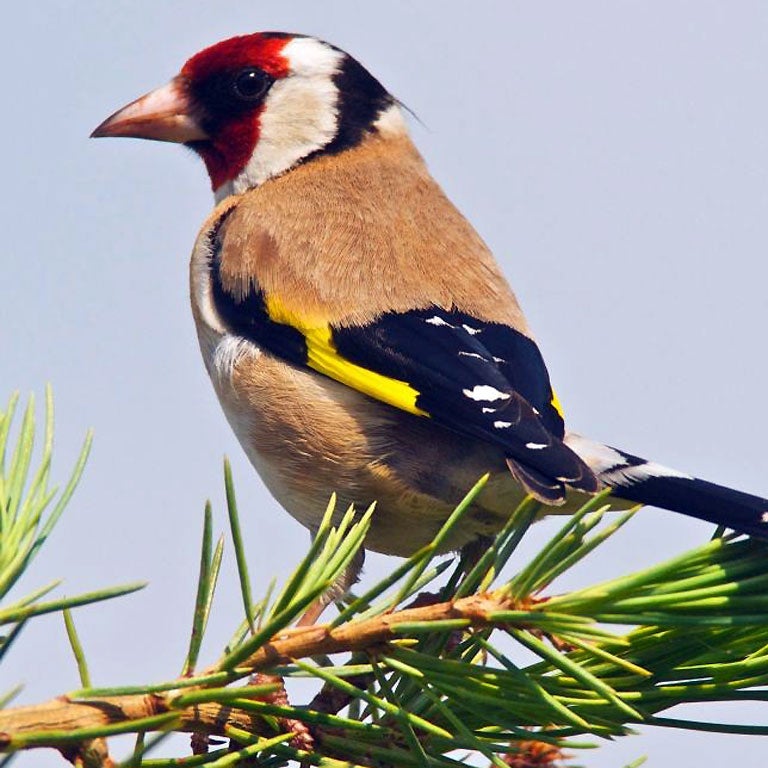Goldfinches thrive in UK gardens as song thrushes dwindle

Your support helps us to tell the story
From reproductive rights to climate change to Big Tech, The Independent is on the ground when the story is developing. Whether it's investigating the financials of Elon Musk's pro-Trump PAC or producing our latest documentary, 'The A Word', which shines a light on the American women fighting for reproductive rights, we know how important it is to parse out the facts from the messaging.
At such a critical moment in US history, we need reporters on the ground. Your donation allows us to keep sending journalists to speak to both sides of the story.
The Independent is trusted by Americans across the entire political spectrum. And unlike many other quality news outlets, we choose not to lock Americans out of our reporting and analysis with paywalls. We believe quality journalism should be available to everyone, paid for by those who can afford it.
Your support makes all the difference.Goldfinches are now found in almost five times as many gardens as they were 16 years ago, latest figures from the British Trust for Ornithology (BTO) show.
But while the annual results for the BTO's Garden BirdWatch survey reveal an influx of the colourful farmland bird into people's gardens, other species such as thrushes have shown major declines since the scheme started in 1995.
Goldfinches are now found in 58% of gardens, up from just 12% in the mid 1990s.
The BTO suggests the increase is down to better food and feeders in gardens for the birds, who particularly like nyjer seeds, along with pressure on food supplies in the countryside.
The bird count, which involves thousands of households tracking the birds in their gardens every week throughout the year, reveals a number of other species which are struggling.
Starlings were seen in 71% of gardens in 1995 but in 2011 were seen in less than half (47%) while greenfinches are down by about the same amount - falling from 71% to 53%.
Song thrushes are now seen in only half as many gardens as they were 16 years ago, with only 15% of people now spotting them, while the number of gardens with mistle thrushes has reached a 16-year low, the BTO's Dr Tim Harrison said.
Dr Harrison said the fall in thrush populations spotted in gardens mirrored wider declines in the species, which experts believe is down to poor survival rates after fledging and during the birds' first winter.
He said dry springs and early summer, such as that experienced last year, hit thrushes while recent cold winters will also have had an impact.
The year-round survey also revealed bramblings were a much more common late-winter visitor in 2011 than in the previous two years.
Last year's mild autumn and early winter left gardens much quieter than the previous couple of years, with blackbird numbers down two-fifths (41%) on the same period in 2009 and 2010.
Last spring saw goldfinches and bullfinches rise well above numbers seen in the previous two years, the BTO said.
Dr Harrison said: "Improved foods and feeder designs, coupled with feeding pressures in the wider countryside, appears to be driving this (goldfinch) and other farmland bird species - such as bullfinch, reed bunting and lesser redpoll - into gardens."
But he said: "For every garden bird success story - such as goldfinch and bullfinch - there is, unfortunately, a species faring less well.
"Mistle thrush, for example, is really struggling. During 2011, the percentage of gardens visited by this imposing thrush was at its lowest point in the 16-year history of BTO Garden BirdWatch, and it is now largely absent from gardens in Greater London."
PA
Join our commenting forum
Join thought-provoking conversations, follow other Independent readers and see their replies
Comments